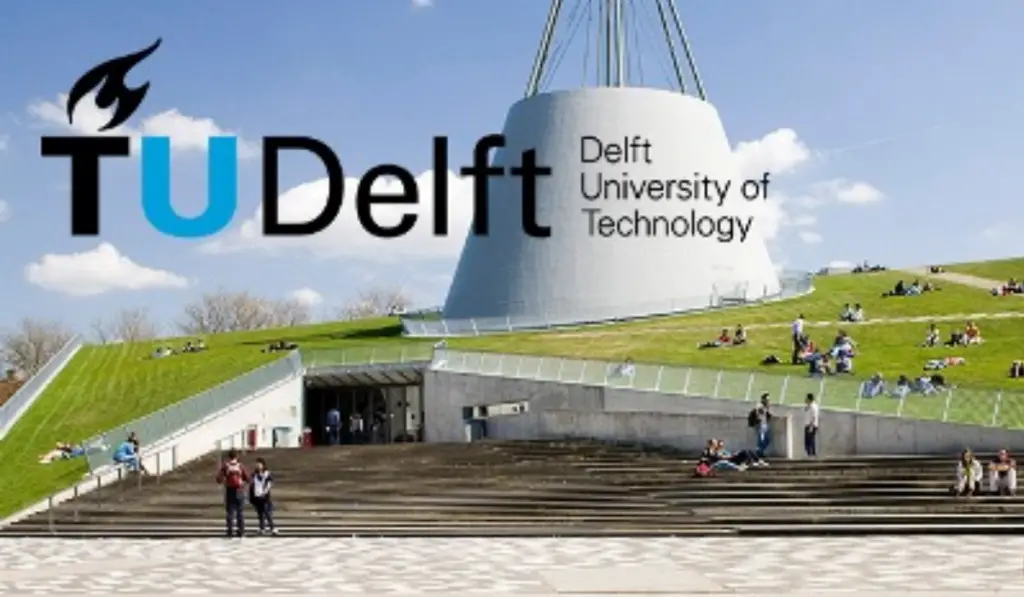Applications are invited for a PhD student to be based within the Section of Geo-Engineering, to work on the development, implementation and application of a multiscale modelling tool as a numerical testing environment for geomaterials.
The first objective of this project is to develop and implement a numerical environment for studying the behavior of heterogeneous geomaterials in an existing finite element code. Based on the explicit modelling of fine-scale heterogeneities and discrete micromechanical structure, the homogenized, large-scale constitutive behavior is to be derived. This homogenized response of heterogeneous soils has to provide input for the formulation of constitutive relations.
Complementary to experimental element testing, the application of the numerical testing environment will allow efficient and rigorous studies of the effects of heterogeneity and microstructure on the (Multiphysics) behavior of soils. In combination with stochastic modelling, this approach will be used to formulate and calibrate stochastic material models. These models account for the small-scale heterogeneous nature of soils as well as for the associated uncertainties and will form the input for stochastic numerical models for the reliability-based design and assessment of geotechnical structures.
Requirements
- Applicants should possess a very good first degree in Civil Engineering, Geoscience, Mechanics of Materials or other related discipline.
- A good understanding of continuum mechanics and numerical modelling is essential, as well as an aptitude for scientific programming for the implementation of numerical methods in existing and new finite element codes.
- Communication skills are important, and applicants should have a high level of proficiency in written and spoken English. If your mother language is not English and you do not hold a degree from an institution in which English is the language of instruction, you must submit proof of English proficiency from either TOEFL (minimum total score of 100) or IELTS (minimum total score of 7.0). Proof of English language proficiency certificates older than two years are not accepted.
- The successful candidate will be expected to cooperate with other members of the research team and external collaborators.
Conditions of employment
TU Delft offers PhD-candidates a 4-year contract, with an official go/no go progress assessment after one year. Salary and benefits are in accordance with the Collective Labour Agreement for Dutch Universities, increasing from € 2395 per month in the first year to € 3061 in the fourth year. As a PhD candidate you will be enrolled in the TU Delft Graduate School. The TU Delft Graduate School provides an inspiring research environment with an excellent team of supervisors, academic staff and a mentor. The Doctoral Education Programme is aimed at developing your transferable, discipline-related and research skills.
The TU Delft offers a customisable compensation package, discounts on health insurance and sport memberships, and a monthly work costs contribution. Flexible work schedules can be arranged. For international applicants we offer the Coming to Delft Service and Partner Career Advice to assist you with your relocation.
TU Delft (Delft University of Technology)
Delft University of Technology is built on strong foundations. As creators of the world-famous Dutch waterworks and pioneers in biotech, TU Delft is a top international university combining science, engineering and design. It delivers world class results in education, research and innovation to address challenges in the areas of energy, climate, mobility, health and digital society. For generations, our engineers have proven to be entrepreneurial problem-solvers, both in business and in a social context. At TU Delft we embrace diversity and aim to be as inclusive as possible (see our Code of Conduct). Together, we imagine, invent and create solutions using technology to have a positive impact on a global scale.
Challenge. Change. Impact!
Faculty Civil Engineering & Geosciences
The Department of Geoscience and Engineering resides within the Faculty of Civil Engineering and Geosciences, and encompasses 5 sections: Applied Geology; Applied Petrophysics and Geophysics; Geo-Engineering; Resource Engineering; and Reservoir Engineering. Current collaborations between Geo-Engineering and the wider Faculty include the Section of Offshore Engineering, and the Departments of Structural Engineering, Hydraulic Engineering, and Geoscience and Remote Sensing.
The Section of Geo-Engineering has 12 full-time and 6 part-time academic staff, and ~40 PhD and Post-Doctoral researchers. Areas of expertise include soil mechanics, dykes and embankments, foundation engineering, underground space technology, engineering geology, and geo-environmental engineering. There are extensive experimental laboratory facilities, including large-scale soil-structure interaction testing facilities and a geotechnical centrifuge, as well as excellent computing facilities including access to national High Performance Computing networks.
Additional information
For more information about the position and for informal discussion please contact Dr. Bram van den Eijnden, +31 (0) 15 278 7443, a.p.vandeneijnden@tudelft.nl.
Application procedure
Are you interested in this vacancy? Please apply before 21 June 2021 via the application button and upload:
- a detailed CV
- proof of English language proficiency
- abstract of your MSc thesis (1 page)
- the names and contact details of 2 referees
- along with a letter of application
You can apply online. We will not process applications sent by email and/or post.
A pre-Employment screening can be part of the selection procedure.
Acquisition in response to this vacancy is not appreciated.

